
Quebec holds a cultural distinction in the framework of the Canadian Federation that should be better understood and appreciated. The Quebecois know what it means to take pride, collectively, in what they have fought for. Yet too often and by too many, Quebec is harshly and wrongly called racist for its pride in preserving its secularist, pluralist culture. This culture is the very same one that endless numbers of new Canadians—immigrants and refugees—freely choose to adopt by coming to Quebec to create new lives for themselves.
Yves-François Blanchet, leader of the Bloc Québéçois, made this point during a press conference before he met with Amira Elghawaby, the federally-appointed anti-Islamophobia adviser, earlier this year. Elghawaby had written in 2019 that ‘the majority of Quebecers appear to be swayed not by the rule of law, but by anti-Muslim sentiment.’ This was in response to public support for Bill 21, a Quebec law placing limits on the wearing of religious clothing by several types of public sector workers. Blanchet’s response to her was: ‘Someone who says Quebec is racist needs to know more about Quebec.’ I agree with him on this point. Unless you study Quebec’s history, you will have little understanding of the sociocultural and sociopolitical transformations that the province underwent after 1960, during the period of la Révolution Tranquille (‘the Quiet Revolution’).
Before the Quiet Revolution swept across the province, Quebec was a largely rural and conservative society dominated and maintained by the Catholic Church, which promoted traditional social hierarchies. During the first half of the 19th century, the Catholic Church wielded significant power in the cultural, religious and political spheres, especially in higher education. In fact, the province set up a Ministry of Public Instruction in 1868 but abolished it in 1875 due to pressure from the Church. Catholic religious leaders combined nationalism with anti-secular Ultramontane ideas to further their interests and increase their authority.

Conservative Catholic domination of Quebec reached its apogee in la Grande Noirceur (‘the Great Darkness’), the period during which Maurice Le Noblet Duplessis’ Union Nationale party held power (from 1936 to 1939 and again from 1944 to 1959). Duplessis viewed Quebec as a Catholic province and ran it with an iron fist, as if it were his own private Catholic corporation. He championed values aligned with the Church and allowed Catholic leaders to directly participate in education, health services, and social assistance, thus affirming the idea of a Quebec that was distinctively and exclusively Catholic. The Duplessis era was the culmination of centuries of Catholic domination of the social and cultural framework of the province.
By the 1960s, the people of Quebec were no longer willing to remain subservient to the clergy and its political backers. ‘Things have to change,’ was one of the slogans of Quebec’s Liberal Party, led by Jean Lesage, during the 1960 election campaign. The victory of Lesage in that year was the beginning of a period of nearly 20 years of dramatic modernisation. New, progressive approaches were adopted in the social and political realms.
Notably, the Liberal government set up a Ministry of Education which created a state-controlled education system and gave women the same rights to higher education as men. It also effectively secularised Quebec by decoupling Church and state and limiting religious influence in public institutions. Since the 1960s, Quebec’s identity has been rooted in the ideal of secular governance; it is seen by Quebecois as a place where all people are represented fairly, rather than one governed by ecclesiastical power in which the clergy dominates the people.

This brings us back to Bill 21 and Quebecois secularism today. Should accommodations for religious minorities be granted? If so, how should they be implemented and what are the limitations on such accommodations?
There are justified criticisms of Bill 21 but there is also much misunderstanding about it. These misunderstandings often stem from two different traditions and interpretations of secularism. In the English-speaking world, secularism focuses on individual freedom of religion whereas in the French-speaking world, laïcité focuses on the collective freedom from religion. This is because the English-speaking and French-speaking worlds have had different historical experiences with religion. In general, the French sought freedom from the dominance of the Catholic Church and the English fought for the individual’s freedom to worship according to their conscience.
Bill 21 is in the spirit of the secularism of the French Republic, which has also been accused of racism because of its enforcement of laïcité for religious minorities. Such accusations are misplaced, however. Bill 21 makes no distinction, for example, between the types of religious symbols worn or displayed. All religions are removed from the public sphere, and this is seen as an equaliser for the benefit of all Quebecois citizens.
‘Est Québécois qui veut l’être’ (‘Whoever wants to be a Quebecer is one’), said René Lévesque during his victory speech after the 1976 Quebec election. The ethical importance of that statement is that the social criteria for being Quebecois are not centred on ethnicity or allegiance to any religion but instead are founded in the upholding, understanding and embracing of the immemorial values of Quebec society. These values are the values of the Enlightenment, as well as liberalism and democracy.
Opponents of Bill 21 see it as a ‘racist’ ban on religious symbols. They see it as an assault on religious minorities in Quebec and argue that it misapplies the principle of religious neutrality as understood in Canadian law. This Canadian principle, which is an interpretation by the Supreme Court of Canada, holds that governments must remain neutral on questions of religion by neither favouring nor disfavouring any particular belief. This implies that although the Canadian government cannot be explicitly religious, it also cannot be explicitly anti-religious: the state must treat religious groups equally.
The problem created by treating religious groups equally is that it opens the door to limitless demands from all religious groups, including illiberal ones. These groups would have criticism of religion designated as hate speech. They would have illiberal and bigoted practices—such as the imposition of Sharia family courts—be not just tolerated but approved of. Treating religious groups equally is mistaken because it falsely assumes that they consist of a homogenous community that can be represented by one or a few loud (usually conservative and male) voices. It thus disregards the repressive treatment that minorities within these minorities often face and it sets up bigoted, misogynistic interpretations of religious doctrine as the one true version that must be respected and accommodated.
Bill 21 does not misapply religious neutrality. It understands and applies it through a French lens. This differs from the English lens that interprets religious neutrality on the federal level. This is perhaps why Anglophone Quebecois were more upset with the bill than their Francophone fellows—indeed, English-language school boards were exempted from the law by Canada’s Supreme Court. It is important to recall that the notwithstanding clause of the Canadian Constitution, which was invoked by Quebec’s National Assembly in passing Bill 21, was intended precisely so that unreasonable court decisions could be rejected by Parliament and provincial legislatures. In 1981, Justice Minister Jean Chrétien stated clearly that the clause would allow legislatures to quickly ‘correct absurd situations’ resulting from court decisions. ‘We needed to have the supremacy of the legislature over the courts,’ Peter Lougheed, then the Alberta premier, who suggested the clause in the final negotiations on the Constitution in the early 1980s, explained. ‘We did not [want] to be in a position where public policy was being dictated or determined by non-elected people.’
The question, then, is this: What kind, or rather kinds, of religious beliefs will be accommodated, permitted and tolerated? Quebec more than perhaps the rest of Canada at present has an excellent chance of strengthening its vigorously pluralistic society. But for this to happen, religious groups need to be compelled to abandon certain presumptions that are incompatible with Quebec’s open liberal democratic society—and should certainly not be allowed to undermine Quebecois secularism.
‘A nation is judged by how it treats its minorities,’ Lévesque once said. Must we now shy away from treating religious minorities with the same maturity as we would any other religious group? Why should we not have the same expectations of minority groups as with any others? Should they not be expected to assimilate and to be open to justified criticism of their practices and beliefs? Is it not insulting to give special protections to their feelings of offence?
The domestication of religion is one of the unremitting responsibilities, as well as one of the hallmarks, of civilisation. Those who, inspired by nebulous notions of diversity, equity and inclusion, would cast aside liberal and Enlightenment values, must understand that they would be throwing away the very things that make liberal democracy a system worth having in the first place. Quebec’s Bill 21 is an assertion of liberalism in the spirit of the Quiet Revolution, not a negation of it, and the values of laïcité are among the most precious—and hard-won—that Quebec has.



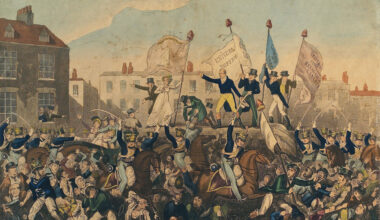
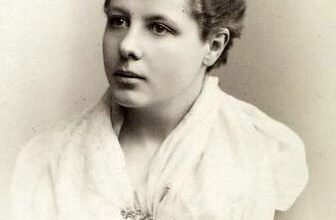
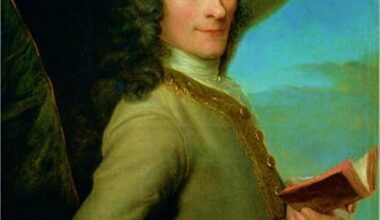
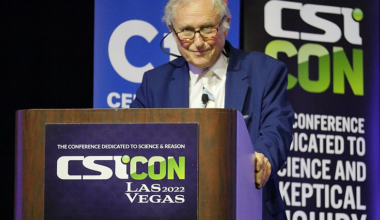
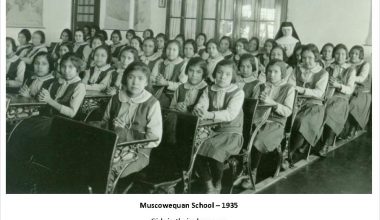
Your email address will not be published. Comments are subject to our Community Guidelines. Required fields are marked *
Donate